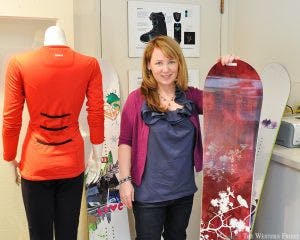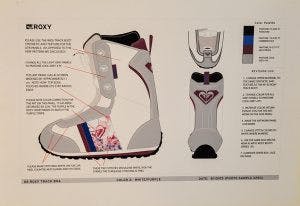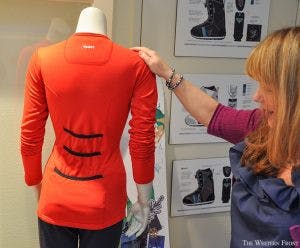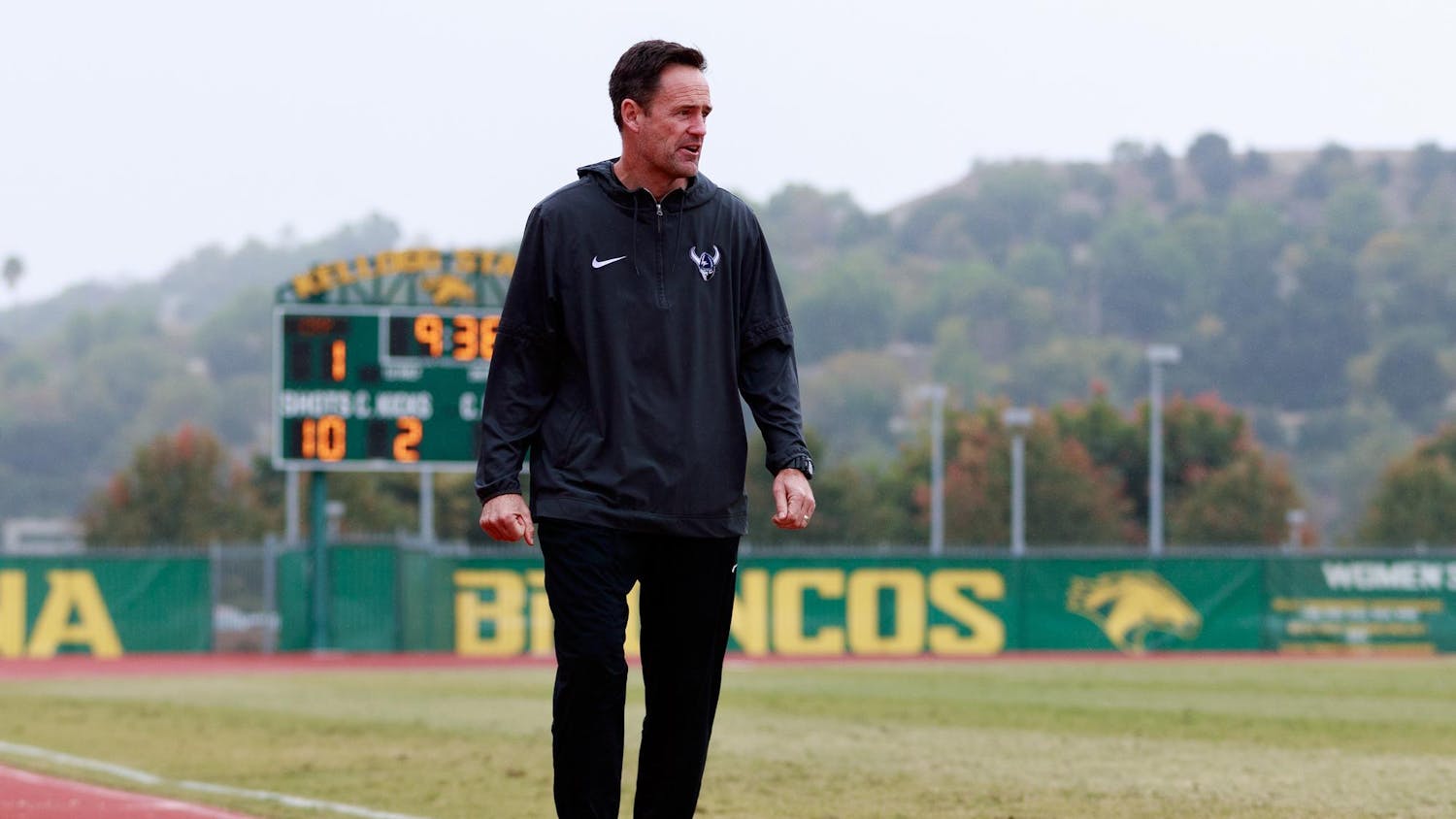The end of a professional snowboarding career was only the beginning for adjunct professor Julia Aiken.
She began her career as a professional snowboarder after graduating from the University of Vermont.
“What started as a summer-off to go snowboarding down a glacier in Whistler, turned into a winter-off in Colorado,” Aiken said. “I entered a few contests, ended up winning a bunch of them and eventually I got sponsored.”
Aiken competed in the 1993 Women's World Pro Tour, ranking second in North America and seventh worldwide.
After four years of snowboarding professionally, an injury to her ankle ended Aiken’s career.
“I was halfway through the season and I tried to compete on it, but couldn’t. So I got in my car and drove home,” Aiken said.

Aiken said she knew then what she really wanted to do was pursue designing snowboarding equipment, something she was already doing throughout her professional career.
“I had no choice but to modify my gear a whole lot. [Men’s] snowboards are really wide and nothing fit [me],” Aiken said. “So I actually cut down a part of a board so that it would fit me and put a bunch of foam padding and duct tape on it. It was kind of Frankenstein, but it totally worked.”
Aiken was at the Burton US Open, a snowboarding competition in 1994, when a group of employees from the snowboard manufacturer Burton, noticed her modified gear.
“When I got done with my run they all made a circle around me at the bottom of the half pipe and they were looking at my gear like, ‘What were you riding on?’” Aiken said.
Aiken showed them her board and said she made the modifications to make it spin on a halfpipe better.
“One of the guys asked me if he could take that board back to the factory and trace it,” Aiken said. “I guess that board went on to be one of the best selling shapes Burton has ever had.”
A year later Aiken was offered a job in product development even though she didn’t have a design degree at the time.
“I could get away with [not having a design degree] because I knew what [kind of clothes women] needed,” Aiken said. “But at some point I knew I had to go back to school and that’s when I came to Western and got my degree [in 2004].”
While working for Burton in 1997, Aiken was hired to be a snowboarding head coach by Katie Bush, the former director and co-creator of a women-only snowboarding camp in Killington, Vermont.
Not only would Aiken coach, Bush said, but she would also teach women how to take care of their equipment through tuning clinics.

In the clinics, Aiken would explain and show campers how to tune and wax their snowboards and pick out the right equipment for them.
“A lot of what she taught was off-mountain as well as on-mountain,” Bush said. “She made you feel successful no matter what your level was. If you were a beginner and never stood on a board before, or intermediate or advanced. Everybody came away feeling like they accomplished something and they were excited to keep doing it.”
While Aiken was working at the camp, she was also in the process of writing her book “Snowboarding: A Woman's Guide (Ragged Mountain Press Woman's Guides).”
The book provides beginner snowboarding tips for women.
Melissa Bush, a friend of Aiken’s, also designed for Burton until she left and went to work for REI as a design director for outerwear.
“She hired me to do a bunch of textile prints, such as liner prints for jackets,” AIken said. “I wound up working there doing outerwear because of her.”
After working in the snowboard industry and designing products for REI and Burton, Aiken started her own clothing company, TOAST.
“After 10 or 15 years of designing products for other people in the snowboard industry, I had always had a dream of starting my own business,” Aiken said.

The idea for TOAST came one day when Aiken and her husband were riding the ski lift in Stowe, Vermont, Aiken said.
“A friend of mine had taught me to tape hand warmers to my back, which is not that fun, but it works really well,” Aiken said. “My husband was freezing and we’re both product designers, so as we’re sitting on the chairlift we said, ‘You know what we need to do, we need to make clothes with heat down the back.’”
Aiken said she went home that night and did some sketches of clothes that could hold hand warmers so she wouldn’t have to tape them to her back.
Those sketches were the beginnings of TOAST. Her heated clothing products earned her the Top 8 Gear review in Backpacker Magazine.





